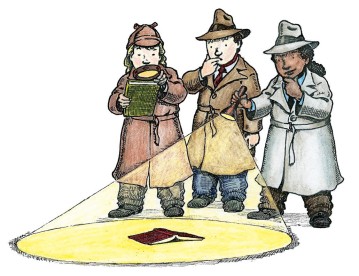
Reporting, The Meanings of Words, and Bible Prophecy…
Executive Director of Gegrapha Jaan Vaino explores the connection between revelation, prophecy, and journalism.
Some months ago, a journalist presented to Gegrapha NYC a study from chapter one of Revelation, the last book of the Bible. That led us to a fruitful series of studies in subsequent chapters of Revelation. It’s remarkable how much that book has to say to Christian journalists—and not in a creepy, ominous way. Its teaching turns out to be highly practical.
Well, here we are again! I didn’t intend to return to Revelation; events and my thoughts on journalism just seemed to lead there again.
Today’s topic does sound like a shameless mash-up, but I think it traces a set of useful, related themes.
First, what does Revelation have to do with reporting, and prophecy with journalism?
“Revelation” is an intimidating word. We might reflexively offer a definition like, “the mysterious impartation of allegedly supernatural knowledge.” Reporting, on the other hand, seems to describe straightforward, un-supernatural work.
Here’s a point where knowing the meanings of words helps. The Biblical Greek word that translates to “revelation” in English means, simply, “to take off the cover:”
Ἀποκαλύπτω -“apokaluptō” From ἀπο-(”off”) and καλύπτω (”to cover up”); to take off the cover, that is, disclose: -reveal.
The word doesn’t mean anything mystically religious; in fact, it didn’t start out as a religious word at all–just everyday language. And that’s actually a key to getting more out of the Scripture as a whole. Its original Hebrew and Greek were not special religious languages; The Bible was written in the languages of the common people—well before some of its words were turned into church buzzwords.
To “reveal” means simply to uncover something that was already there, but was previously hidden from view.
Hey, that’s a pretty good definition of investigative reporting! So we find that journalism and the Bible are connected in how they function, that reporting and revelation essentially are about the same thing: searching out hidden facts and making them plain. Proverbs 25:2 is a pretty good summary of the reporting/revelation process: “It is the glory of God to conceal a matter; to search out a matter is the glory of kings.” (NIV)
But how does Bible prophecy fit into reporting? In a sane, mostly deep-background way, the prophecies of the Bible offer a Christian a balanced framework for viewing the world and humanity—though we should note that undisciplined, mechanistic, or obsessive approaches to Bible prophecy should be avoided.
If we study prophecy rightly, there are great promises in the Bible about what we may gain. Here are a few words of encouragement from the Book of Revelation itself:
Blessed is the one who reads the words of this prophecy, and blessed are those who hear it and take to heart what is written in it, because the time is near. Revelation 1:3 (NIV)
Look, I am coming soon! Blessed is the one who keeps the words of the prophecy written in this scroll. Revelation 22:7 (NIV)
Then he told me, “Do not seal up the words of the prophecy of this scroll, because the time is near. Revelation 22:10 (NIV)
I warn everyone who hears the words of the prophecy of this scroll: If anyone adds anything to them, God will add to that person the plagues described in this scroll. And if anyone takes words away from this scroll of prophecy, God will take away from that person any share in the tree of life and in the Holy City, which are described in this scroll. He who testifies to these things says, “Yes, I am coming soon.” Amen. Come, Lord Jesus. Revelation 22:18-20 (NIV)
In sum, it is every Christian’s business to be concerned with scriptural prophecy. Likewise, journalists should make it their business to uncover and carefully disclose hidden realities. Christian journalists also should pay attention to Bible prophecy, and allow it to inform their outlook and reporting. God promises a blessing if we approach our work in this manner.



This resonates with the fact that many journalists feel they have a calling to uncover and reveal. The calling reminds a journalist that he/she uncovers and reveals for His glory, not one’s own.
As you point out, revealing is rooted in the nature of God’s communication to us.